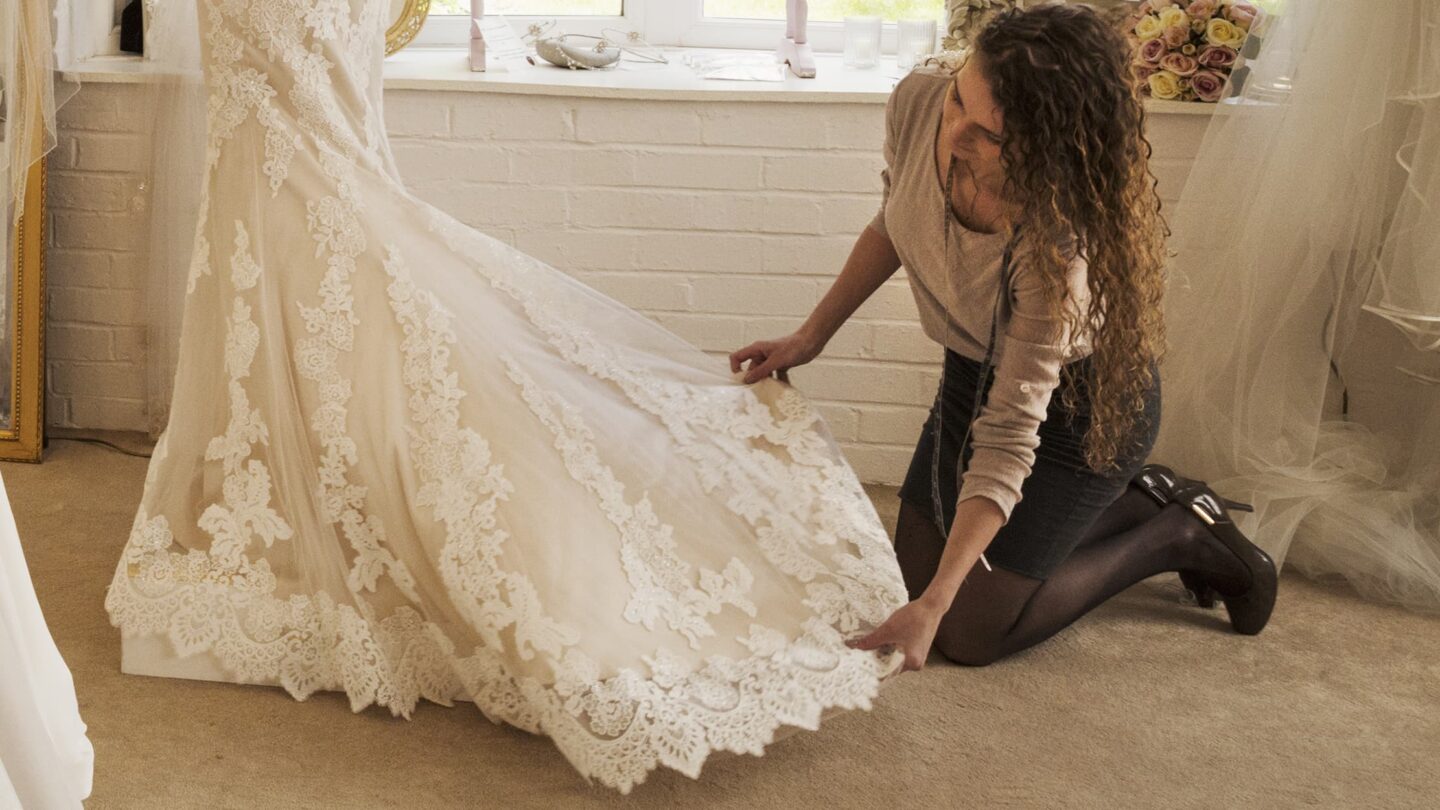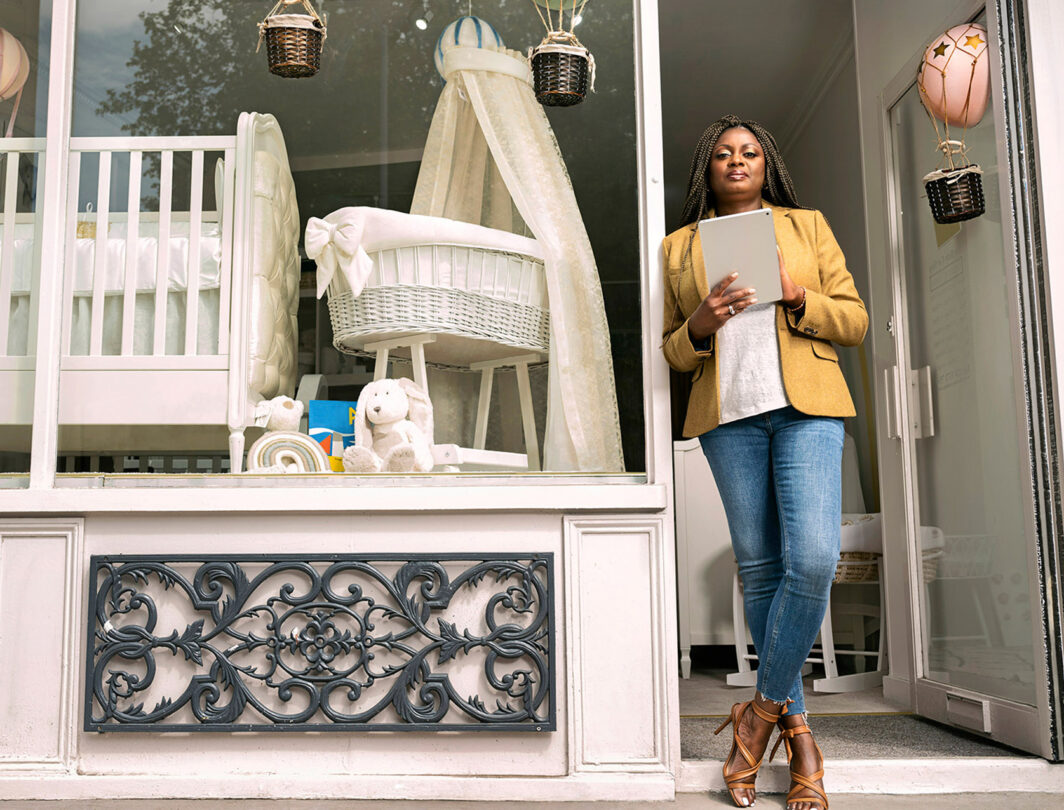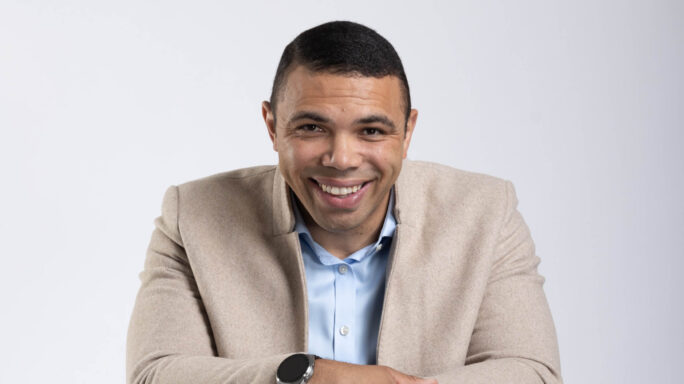Growth & Customers
From the outside looking in: An honest account of what it takes to build a fashion business
Fashion designer Balini Naidoo Engelbrecht is brutally honest about the highs and lows of entrepreneurship, nearly giving up, and remembering her purpose.

Entrepreneurship is a dream for many people, yet few talk about what really goes into growing a successful business. But fashion designer Balini Naidoo Engelbrecht is brutally honest about what it takes to be your own boss.
While pursuing her BTech in fashion, Balini developed the Braille identification system, which assists visually impaired people in selecting clothing and outfits and becoming more independent.
The first of its kind in the world, the Braille identification system embeds Braille into graphic prints and slogans on clothing. The print is visible to sighted people, but carries important information for the visually impaired, including the size and colour of the garment, wash and care instructions, style description, and how they can pair the item with other colours and types of garments.
“Visually impaired people can’t see the slogans printed on clothing, so I created Braille slogans to raise awareness for visually impaired people and create a new wave of communication between sighted and non-sighted people.”
The innovation received much attention when Balini introduced it at the Design Indaba in 2018. She was invited to showcase her work on various media channels, including Top Billing, Hectic Nine-9, Expresso, and several magazines and radio stations. She was also named one of 30 Young Mandelas of the Future.
“I’m grateful for the media attention because it gave me a platform to advertise and tell the world about my concept, but the pressure was intense. In the same year, I moved to my hometown Saldana Bay, got married, and registered my business. I patented my concept, got a trademark, and had non-disclosure documents drawn up – everything. I also launched an online store to sell the Braille T-shirts.”
But it quickly became too much, too fast.

Fashion designer Balini Naidoo Engelbrecht
Pivoting, COVID, and pivoting some more
“The media attention was good, and it pushed me to a point where I should have been, but it also felt like I was pushed into something that I still needed time to work on. It gave the impression that I was a successful businesswoman and, if you didn’t know me, you’d think I had R1 million in the bank, but that’s not the case. I funded everything myself, with a lot of help from my parents. And funding remains one of my biggest challenges.”
When T-shirt sales didn’t meet her expectations, Balini had to innovate to bring in more money, so she started making loungewear, wedding and Matric dance dresses, and other custom-made garments.
But then COVID hit, which dented T-shirt sales even more. Weddings and dances were cancelled.
Balini admits that her emotional wellbeing started to suffer. “There was a point when I felt like giving up. Yes, I had a product that made an impact, but I never had the means to pursue it, and I wasn’t getting the help I needed. There was so much pressure on me to have achieved so much in a short period of time, which I haven’t. It was depressing and breaking me down into pieces, yet I still had to attend events and put on a happy face.”
To keep herself motivated, busy, and distracted during the downturn, Balini threw herself into community work. She gave art classes at special needs schools and taught women in her community how to sew. She gave motivational talks and shared her story in schools. She also partnered with a non-governmental organisation to collect and donate baby clothes to the maternity ward at her local hospital.
“I don’t need money to use my hands and skills to help others and give back. Empowering my community was something that was instilled in me at a very young age. I watched my parents and grandparents working in the family business, and I’ve always been willing to help, to share advice, and to inspire others.”
The nitty-gritty of entrepreneurship
Balini shares an honest account of what it takes to be an entrepreneur in the fashion industry. While it might look fancy and glamorous from the outside, she admits it’s draining and stressful. Yes, it’s a creative field, but it requires 110% effort.
“Fashion design and the process of creating clothing is not for the faint-hearted. It’s a lot of work; it’s time-consuming and super difficult. I work non-stop, Monday to Sunday. I have a 14-month-old daughter, and I work from home with no assistants – I do everything myself, including admin, completing orders, and attending meetings. My husband often works evenings and night shifts, and having a toddler means I never really get a break.”
That’s not to say she would change anything. She’s passionate about what she does, and her passion for creating change, innovating, and inspiring others keeps her motivated. She loves coming up with new ideas, pushing boundaries that she wouldn’t usually be able to and touching on topics that haven’t been taught before. She has always been passionate about doing things for others and being the change she wants to see in the world, to quote Nelson Mandela.
“Being an entrepreneur gives you that open door to open doors that have been shut – and many other new doors. I get excited about creating stuff that’s needed.”
“I’m not very fashionable for a fashion designer,” she laughs. “I never design clothing for myself; I’d rather buy something from the store. But when it comes to my business, it’s never about me. It’s always about the customer and the product I’m designing. I align myself with their needs and vision, knowing that whatever I do for someone else lasts a lifetime.”
This mindset and the decisions she’s made in life have gotten her to where she is today. And she’s grateful for the lessons that COVID and the nitty-gritty of entrepreneurship have taught her.
Her advice to other entrepreneurs is to know why you’re doing it and to have a goal or mission to work towards. For Balini, that mission is to serve others. She lives by the quote, “What I do for myself dies with me, but what I do for others will last forever.”
“It’s humbling being thought of as a leader, and I’m incredibly grateful that my work has impacted so many people. If you had met me ten years ago, I probably would have been somebody totally different. I didn’t know then that the steps I’d take in life would make me a leader. It’s a nice feeling to know that people look up to me and that what I do, what I put out there, or how I give back makes an impact – especially in the world we live in today.”
That said, Balini has not yet reached her peak. In fact, she’s started a new journey of developing her business, and although it’s early days, she has a lot in store.
“I’m proud of what I’ve achieved and how my business has grown. But there is so much more that I want to do, and I’m not where I should be. I wish I had more time – or that I could stop time to give it my full attention, but I’m only human. I know I’ll get there eventually. It’s tough, but it’s always rewarding at the end.”
Balini’s top advice for entrepreneurs:
- Find your niche. “You need to stand out as a businesswoman; having a niche lets you do that.”
- Know when to say no. “It’s important to say no to the things that pull you down or don’t reflect who you are. Stay true to yourself.”
- Mind your choices. “We all have different choices in life when it comes to business, family, and relationships. The choices we make as entrepreneurs and leaders are important because they shape who you are in your community. When you step out of your house, you are your brand, and people are watching you. So, be mindful of what you say, how you say it, or who you say it to because if you’re regarded as a leader, it has to be reflected throughout, even if you’re talking to your neighbour.”
- Find your inspiration. “Working in a creative industry, I’m inspired by the Bauhaus movement, where less is more. I draw my inspiration from nature, my surroundings, and the different types of people, cultures, and ethnicities I’m exposed to. In whatever situation I’m in, I look for ways to make things fun and exciting, try new things, and think outside the box. Then, I throw myself into it wholeheartedly.”
- Stay humble. “I believe that the little things help us prosper in life. Yes, money makes the world go around. But where you invest your time makes you who you are and determines your success. If we don’t remember that, then I think we’ve lost it.”
How to pitch for investment as a small business
Learn the tricks that help businesses make their first steps towards growth and lasting success








Ask the author a question or share your advice